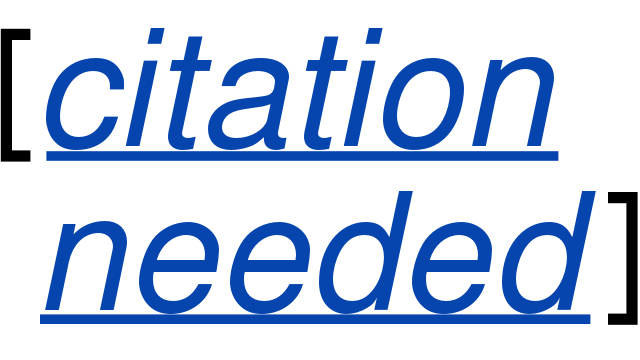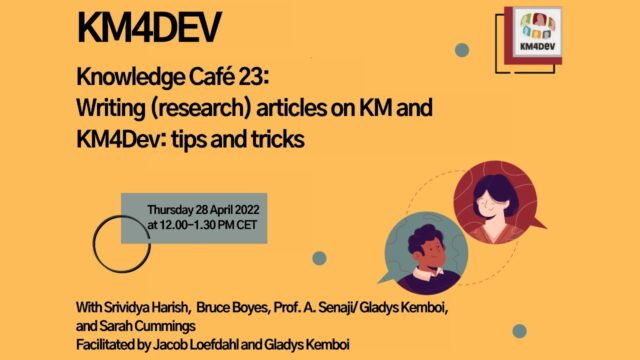
What is the Initiative for Open Citations (I4OC), and why is it important?
In a previous RealKM Magazine article, I listed the range of “open” initiatives that are aiming to encourage and facilitate open access to information and knowledge. They include open access, open data, open innovation, and open educational resources.
A new addition to this list is the Initiative for Open Citations (I4OC).
A citation is a reference to or quotation from a paper, book, or author, especially in academic publishing. Citations allow authors to attribute and credit scientific contributions, which assists in the discovery and dissemination of academic knowledge. This is why we reference all of the academic sources that are used in our RealKM Magazine articles (and you can see examples of this referencing in the following sentences of this paragraph). Citations also enable the evaluation of research and its impacts. For example, I recently reported on a study1 that used the Citespace2 application for co-citation analysis as part of an evaluation of knowledge management (KM) as an academic discipline.
For the discovery, dissemination, and evaluation of all scholarly knowledge to be possible, it is essential to have unrestricted access to bibliographic and citation data in machine-readable form. In recognition of this, I4OC was launched in April 2017 with the purpose of promoting the release of structured, separable, and open citation data.
Silvio Peroni, a Co-Director of OpenCitations, advises in a recent conference presentation3 that:
- Structured means that citation data must be expressed in one or more machine-readable formats
- Separate means that citation data must be available without the need to access the source bibliographic entity (e.g. the article or book) in which the citation is defined
- Open means that citation data must be freely accessible and reusable without restrictions, for example by publication under the CC0 1.0 Universal waiver/license.
Before I4OC started, publishers releasing open citations accounted for just 1% of the citation metadata that Crossref collected annually. Crossref is a not-for-profit membership organization that works to make research outputs easy to find, cite, link, and assess.
Peroni reports that as of September 2018, the fraction of publications with open citations has grown from 1% to 52%, and that more than 500 million citations are now open. I4OC encourages all other scholarly publishers to follow the example of these publishers, and Peroni alerts that at present, just five publishers among the top 20 Digital Object Identifier (DOI) depositors are not distributing open references:
- Elsevier
- Wolters Kluwer Health
- IEEE
- IOP Publishing
- American Chemical Society.
Header image source: Citation-needed-vertical on Wikimedia Commons is in the Public Domain.
References:
- Wang, P., Zhu, F. W., Song, H. Y., Hou, J. H., & Zhang, J. L. (2018). Visualizing the Academic Discipline of Knowledge Management. Sustainability, 10(3), 682. ↩
- Chen, C. (2006). CiteSpace II: Detecting and visualizing emerging trends and transient patterns in scientific literature. Journal of the American Society for information Science and Technology, 57(3), 359-377. ↩
- Peroni, S. (2018). The Open Citations Movement: the Story So Far. 5th Conference on Scholarly Publishing in the Context of Open Science – PUBMET 2018, 20-21 September 2018, Zadar, Croatia. ↩
Also published on Medium.



